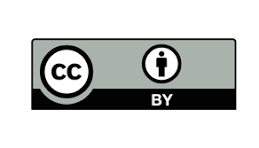AVALIAÇÃO DO PAPEL DA AUTOFAGIA NA PROGRESSÃO E RESPOSTA TERAPÊUTICA DO CARCINOMA EPIDERMOIDE DE ESÔFAGO
EVALUATION OF THE ROLE OF AUTOPHAGY IN PROGRESSION AND THERAPEUTIC RESPONSE OF EPIDERMOID ESOPHAGEAL CARCINOMA
Palavras-chave:
Autofagia, Carcinoma Epidermoide de Esôfago, Resposta Terapêutica, Autophagy, Esophageal Squamous Cell Carcinoma, Therapeutic ResponseResumo
O câncer de esôfago (CE) representa o oitavo tumor mais incidente e o sexto mais mortal dentre todos os tumores malignos no mundo. O carcinoma epidermoide de esôfago (CEE) representa 90% dos casos de CE. A alta letalidade do CEE é consequência, principalmente, do diagnóstico tardio desses tumores. O entendimento dos mecanismos envolvidos na desregulação dos processos celulares e moleculares envolvidos com o desenvolvimento desse tumor pode levar à identificação de vias alteradas, revelando potenciais novos alvos terapêuticos. Nesse contexto, a autofagia surge como um interessante alvo de estudo para o CEE, devido aos estresses advindos do microambiente tumoral serem fundamentais para a progressão tumoral e compreenderem a privação de nutrientes, hipóxia, desprendimento da matriz extracelular, dentre outros, que são capazes de disparar a autofagia. Estudos observaram uma associação entre a autofagia, resposta ao tratamento e, consequentemente, prognóstico dos pacientes. Dessa forma, moléculas envolvidas com a autofagia vêm sendo propostas como biomarcadores de prognóstico e/ou resposta terapêutica, e esse processo vem sendo alçado como um promissor alvo terapêutico. Nesse sentido, devido aos poucos estudos sobre o papel da autofagia na terapêutica do CEE, esse se tornou o foco deste presente trabalho.
Abstract
Esophageal cancer (EC) represents the eighth most incident tumor and the sixth most deadly of all malignant tumors worldwide. Esophageal squamous cell carcinoma (ESCC) represents 90% of cases of EC. The high lethality of ESCC is a consequence, mainly, of the late diagnosis of these tumors. Understanding the mechanisms involved in the deregulation of the cellular and molecular processes involved in the development of this tumor can lead to the identification of altered pathways, revealing potential new therapeutic targets. In this context, autophagy appears as an interesting study target for ESCC, due to the stresses arising from the tumor microenvironment being fundamental for tumor progression and understanding the deprivation of nutrients, hypoxia, detachment of the extracellular matrix, among others, which are capable of trigger autophagy. Studies have observed an association between autophagy, response to treatment and, consequently, patients' prognosis. Thus, molecules involved in autophagy have been proposed as biomarkers of prognosis and/or therapeutic response, and this process has been raised as a promising therapeutic target. In this sense, due to the few studies on the role of autophagy in the treatment of ESCC, this has become the focus of this present work.
Downloads
Downloads
Publicado
Como Citar
Edição
Seção
Licença
Copyright (c) 2021 Episteme Transversalis

Este trabalho está licenciado sob uma licença Creative Commons Attribution-NonCommercial 4.0 International License.
Revista Episteme Transversalis © 2010 por Centro Universitário Geraldo Di Biase está licenciada sob Creative Commons Atribuição 4.0 Internacional. Para visualizar uma cópia desta licença, visite https://creativecommons.org/licenses/by/4.0/













